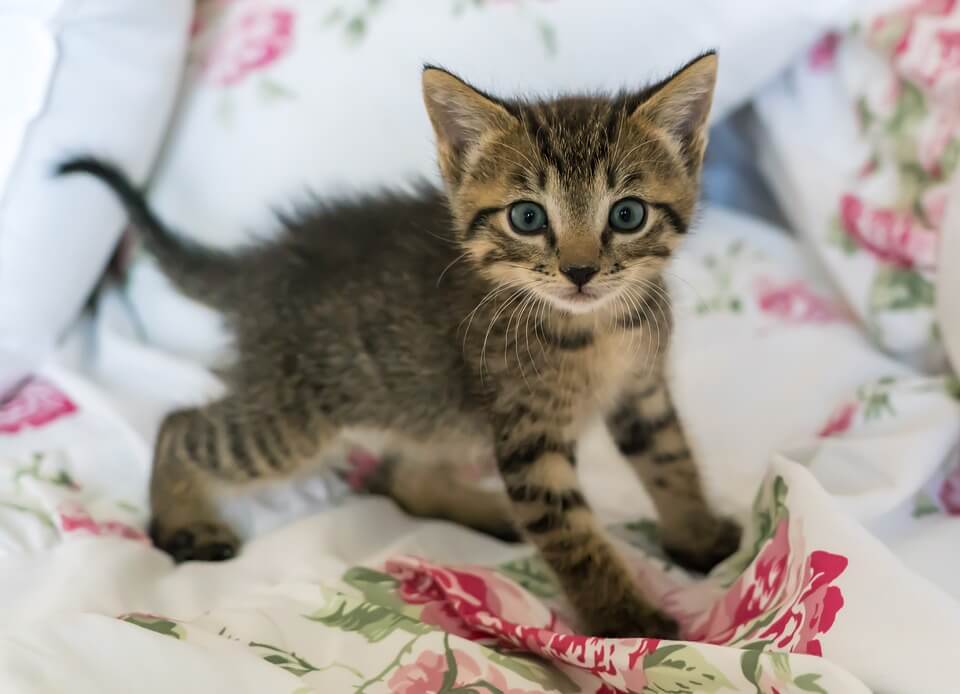
Seeing your pet vomiting is distressing, even scary for a pet owner. However, studies show that a cat who vomits does not necessarily signal that a bad thing is happening. Many cats and dogs throw up for a variety of not so serious reasons.
It can be your feline just trying to expel a toy or bones or things they should not have ingested. Sometimes, they would even try to bring out hairballs through vomiting.
Every cat owner is familiar with the signs of a feline’s upset stomach: gagging, heaving, and a mournful meowing. But in a few minutes, most cats can magically snap back to perfect health. It can happen before you finish with cleaning their mess in the carpet.
In these cases, cat vomiting becomes a just normal reaction, and there is no need for alarm. But what if the vomiting becomes frequent? Or severe? How to figure out if the behavior is beyond normal condition?
Cat vomiting that is increasing in frequency and severity is something that we should take seriously. It is because severe and frequent vomiting is a symptom that accompanies many severe feline disorder. If your cat is throwing up, it is best to observe the quantity and quality of the vomit, and the number of times your cat does it.
Is it daily? Hourly? Is it a lot? How about the color and consistency? Your findings are significant. You might find your cat sicker than you thought, and a trip to the vet becomes necessary. Also, knowing what triggers your pet’s upset stomach and ways how to avoid it will create a much better relationship between you and your feline friend.
Table of Contents
What Are the Types of Feline Vomiting?
There are significant differences when comparing cats who throw up occasionally, those who do so uncontrollably, and cats who vomit all the time. Each type has it’s own corresponding causes and requires different sets of treatment.
Feline Vomiting
Almost all cats experience throwing up occasionally. Some do it once or twice a year. Some people also do it as often as twice a month.
Acute Feline Vomiting
It happens when the condition occurs suddenly, and the cat does not stop throwing up even when the stomach contents are already emptied and what’s coming out is already bile.
Chronic feline Vomiting
It happens when a cat throws up regularly, as often as several times a week without any apparent ill effect on your cat’s health.
What Causes Cats to Vomit?
Many factors can cause a cat to vomit repeatedly. Whether it’s just a passing thing or a symptom of an underlying illness, learning to address the cause is the key to resolving this health issue.
Ingestion of Substances
Sudden and acute episodes of vomiting can happen when your cat has ingested materials that are causing an upset stomach. It can range from not so dangerous things such as dried leaves or spoiled food to life-threatening substances like poison, string or yarn, or even human medication.
These substances, if left inside the cat’s system can cause severe illness or even death to your cat. If you suspect your cat has ingested any of these substances, it will be best to have it checked by a veterinarian immediately.
Hairballs
Hairballs are made up of damp, unprocessed hair, and almost every cat gets it in their lifetime. Usually, hacking noises and uncontrolled spasms accompany hairball vomiting. Although these hairballs typically come out quickly, there are cases when it gets stuck and can seem to get out.
In which case, it will be crucial to take your cat to the vet immediately and have it taken out before it causes further complications such as intestinal blockage.
Chronic Diseases
Sometimes, vomiting presents itself as a symptom to an underlying condition such as chronic kidney failure, acute liver failure, gallbladder disease, colitis, pancreatitis or gastritis, to name a few. These need to be checked and evaluated by a vet so that a treatment plan can be started on your cat.
Bacteria, Viruses or Parasites
Intestinal viral and bacterial infection may cause frequent vomiting of your cat. Also, parasites lodged in your felines stomach can cause acute vomiting, since food can’t be processed and digested quickly.
Changes in Diet
Sometimes, we tend to overlook the possibility that our pet’s vomiting is happening because of a simple change in diet. Whenever you need to make changes on the food your pet eats, added something to their menu or have recently been taking medication, it is always good practice to look out for any changes and identify what’s causing the vomiting so that treatment plans can easily be implemented.
Eating too fast
Just like humans, cats who eat fast tend to grind their food inadequately, and the stomach can have trouble digesting food fast paced. When this happens, cats experience symptoms of stomach upset which also includes regurgitation.
If a cat starts to eat slower and still experiences frequent vomiting, then it is safe to say that something else is causing the problem.
Food Allergies
The most common allergens for cats are wheat and corn. The thing is, both of these ingredients are often available in dry food.
Poisoning
Sudden vomiting is one of the most common signs of intoxication in cats. It calls for an emergency. When you suspect your cat of having ingested poison, you need to take him to a vet and call a local pet poison center immediately.
What Is the Treatment and Prevention of Cat Vomiting?
The treatment plan of your cat’s vomiting depends mainly on the identified cause. Once your vet has evaluated your pet’s condition, he will guide you through a specific treatment plan. He will also help you make informed decisions depending on your cat’s needs.
- Give your cat small: Frequent feeding to help his stomach adjust more readily to food and avoid throwing up.
- If you find out that food allergies are the culprit on why your cat may be in a dangerous condition, it will be best to switch the food you serve to a cat. Ideally, you should avoid purchasing any that has grains on it. You can look for grain-free cat food, and make sure to read the ingredients well.
- Regular trips to the vet ensure that signs and symptoms are identified early, and treatment plans are appropriately set.
- Always keep potentially toxic substances out of your cat’s reach. Just like children, cats have a natural tendency to explore, and having a poisonous substance handy is not going to help in any way.
- Since regular grooming prevents the formation of hairballs, a good cat brushing tool will go a long way in keeping your cats safe.
Conclusion
When you see your dear cat vomiting, there can be two possible reactions. You might ignore it and take it lightly, or freak out and go on a panic mode. Although these are normal reactions, remember to go in-between merely.
Stay calm, analyze, observe, and decide based on the symptoms. Appropriate action and quick response to the situation can make all the difference when it comes to the chances of your cat getting better.
Above all, keeping your cat away from factors that cause vomiting will be beneficial. After all, prevention is always better than cure.
You May Also Interested In:
- How Long Can A Cat Go Without Food and Water?
- Can Cat Drink Coconut Water?
- Do Cats Eat Rats or Do Cats Just Kill Rats?
Share this:
- Click to share on Twitter (Opens in new window)
- Click to share on Facebook (Opens in new window)
- Click to share on Tumblr (Opens in new window)
- Click to share on Pinterest (Opens in new window)
- Click to share on Reddit (Opens in new window)
- Click to share on Telegram (Opens in new window)
- Click to share on WhatsApp (Opens in new window)
- Click to print (Opens in new window)
